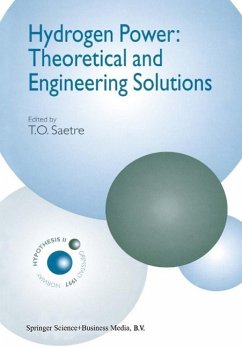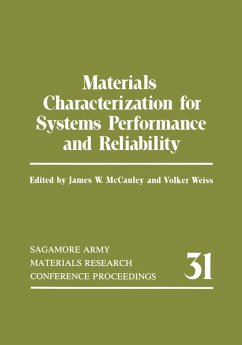
Local Structure from Diffraction (eBook, PDF)
Versandkostenfrei!
Sofort per Download lieferbar
167,95 €
inkl. MwSt.
Weitere Ausgaben:

PAYBACK Punkte
84 °P sammeln!
This series of books, which is published at the rate of about one per year, addresses fundamental problems in materials science. The contents cover a broad range of topics from small clusters of atoms to engineering materials and involve chemistry, physics, materials science and engineering, with length scales ranging from Ångstroms up to millimeters. The emphasis is on basic science rather than on applications. Each book focuses on a single area of current interest and brings together leading experts to give an up-to-date discussion of their work and the work of others. Each article contains...
This series of books, which is published at the rate of about one per year, addresses fundamental problems in materials science. The contents cover a broad range of topics from small clusters of atoms to engineering materials and involve chemistry, physics, materials science and engineering, with length scales ranging from Ångstroms up to millimeters. The emphasis is on basic science rather than on applications. Each book focuses on a single area of current interest and brings together leading experts to give an up-to-date discussion of their work and the work of others. Each article contains enough references that the interested reader can access the relevant literature. Thanks are given to the Center for Fundamental Materials Research at Michigan State University for supporting this series. M.F. Thorpe, Series Editor E-mail: thorpe @ pa.msu.edu East Lansing, Michigan PREFACE One of the most challenging problems in the study of structure is to characterize the atomic short-range order in materials. Long-range order can be determined with a high degree of accuracy by analyzing Bragg peak positions and intensities in data from single crystals or powders. However, information about short-range order is contained in the diffuse scattering intensity. This is difficult to analyze because it is low in absolute intensity (though the integrated intensity may be significant) and widely spread in reciprocal space.
Dieser Download kann aus rechtlichen Gründen nur mit Rechnungsadresse in A, B, BG, CY, CZ, D, DK, EW, E, FIN, F, GR, HR, H, IRL, I, LT, L, LR, M, NL, PL, P, R, S, SLO, SK ausgeliefert werden.












